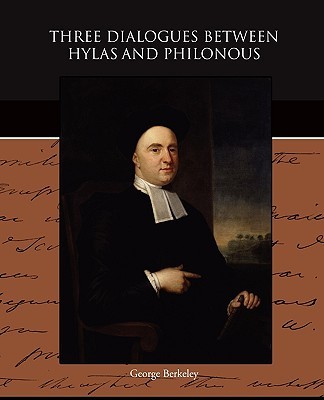
- We will send in 10–14 business days.
- Author: George Berkeley
- Publisher: Book Jungle
- Year: 2009
- Pages: 140
- ISBN-10: 1438527713
- ISBN-13: 9781438527710
- Format: 19.1 x 23.5 x 0.8 cm, minkšti viršeliai
- Language: English
- SAVE -10% with code: EXTRA
Reviews
Description
George Berkeley also known as Bishop Berkeley was an 18th century philosopher. His theory of "immaterialism" was later referred to as subjective idealism. This theory, summed up in his dictum, "Esse est percipi", states that individuals can only directly know sensation and ideas of objects not abstractions such as matter. Berkeley wrote A Treatise Concerning the Principles of Human Knowledge (1710) and Three Dialogues between Hylas and Philonous (1713). Berkeley used the characters of Philonous and Hylas to represent himself and John Locke. Three important concepts discussed in the Three Dialogues are perceptual relativity, the conceivability/master argument, and Berkeley's phenomenalism.
EXTRA 10 % discount with code: EXTRA
The promotion ends in 22d.21:52:11
The discount code is valid when purchasing from 10 €. Discounts do not stack.
- Author: George Berkeley
- Publisher: Book Jungle
- Year: 2009
- Pages: 140
- ISBN-10: 1438527713
- ISBN-13: 9781438527710
- Format: 19.1 x 23.5 x 0.8 cm, minkšti viršeliai
- Language: English English
George Berkeley also known as Bishop Berkeley was an 18th century philosopher. His theory of "immaterialism" was later referred to as subjective idealism. This theory, summed up in his dictum, "Esse est percipi", states that individuals can only directly know sensation and ideas of objects not abstractions such as matter. Berkeley wrote A Treatise Concerning the Principles of Human Knowledge (1710) and Three Dialogues between Hylas and Philonous (1713). Berkeley used the characters of Philonous and Hylas to represent himself and John Locke. Three important concepts discussed in the Three Dialogues are perceptual relativity, the conceivability/master argument, and Berkeley's phenomenalism.


Reviews